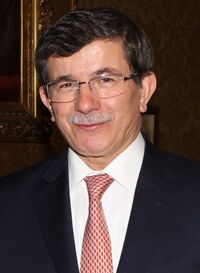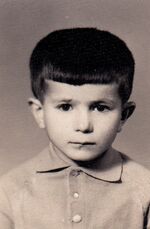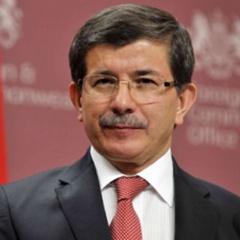Imat Ilva
Imat Ilva | |
|---|---|
 | |
| 7th President of Gregahou | |
| Assumed office 1 January 2018 | |
| Prime Minister | Yohan Varayev (NL) |
| Preceded by | Bair Sadukov |
| Chairman of the Social-Democratic Party | |
| Assumed office 1 January 2012 | |
| Preceded by | Nataliya Vasilyeva |
| National Assemblyman for Stolitsemlağa | |
| In office 1 January 2006 – 31 December 2011 | |
| Preceded by | Akhat Avzalov |
| Succeeded by | Raşit Yakhin |
| Public Assemblyman for Stolitsemlağa | |
| In office 1 January 1998 – 31 December 2004 | |
| Preceded by | Pyotr Dinov |
| Succeeded by | Natan Şabaev |
| Mayor of Stolitsemlağa | |
| In office 1 January 1988 – 31 December 1997 | |
| Preceded by | Sergei Rondeleyev |
| Succeeded by | Renat Borkhanov |
| Personal details | |
| Born | 18 January 1959 Stolitsemlağa, Gregahou |
| Nationality | Gregahouvian |
| Political party | Social-Democrats (1998–present) |
| Spouse | Alina Salenkova (m. 1986) |
| Alma mater | Universitet Natsional |
Imat Ilva (born 18 January 1959) is the seventh and incumbent President of Gregahou, as well as the chairman of the Social-Democrat party since 2012. He previously served in both the National Assembly and Public Assembly for the capital region of Stolitsemlağa from 1998 to 2011 in addition to a nine-year run as Mayor of Stolitsemlağa from 1988 until 1997. Ideologically, Ilva identifies as a social democrat, and is credited as a leader behind the strong influence the ideology has had on Gregahouvian politics in the 21st century.
Born into a working-class Tatar family living under Soviet rule in Stolitsemlağa before moving to Almata, Ilva was able to attend university only after Gregahouvian independence and was later accepted into the state university system before graduating in 1985. While studying in the nation's capital at Universitet Natsional, he was elected editor-in-chief of the school's newspaper and additionally played football in the Premyer Liga for the university in his final year as a student. After graduating, Ilva notably worked as an editor for his party's newspaper, Zreniy Stolitsemlağanskiy before eventually running successfully for the position of Mayor of Stolitsemlağa, the beginning of his political career.
Throughout his tenure, Ilva has proven to be a well-liked and popular figure in Gregahouvian politics. Supporters generally point out his commanding range of demographics among which he draws appeal from; his win in the 2017 general election statistically was the most dominant in the nation's history. Additionally, many conservative voters praise his strict views on immigration and border security, in part due to his role as one of the first true Gregahouvian-born politicians. Conversely, many critics have accused him of harsh taxation crackdowns on business, especially during his tenure as a mayor during the increasingly laissez-faire policies of then-President Josef Ardan. However, since his 2017 presidential election victory, Ilva has cemented his image as a publicly-dominating, charismatic patriot, and is believed to become the most influential leader since the nation's independence.
Early life
Childhood
Ilva was born on 18 January 1959 under Soviet rule in the Tatneft oil project to a working-class family in present-day Stolitsemlağa. His father, Lenar Ilva, worked on a government-sponsored oil rig as one of the first waves of employees to fully transition to life on the archipelago, whilst his mother left her job as an au pair to teach primary school to adapt to the influx of people arriving on the islands. Despite being born in Stolitsemlağa, Ilva spent most of his childhood in Almata, where his father was moved in 1965 to work on a different oil rig. Ilva attended Soviet-sponsored primary and secondary schools in Almata, graduating in 1975. Ilva also played football throughout his childhood, and stated in a 2018 interview with Telerad that he aspired to be a professional footballer during much of his teenage years.
War for independence
After graduating secondary school, Ilva was not able to attend university until almost ten years later due to ongoing insurgencies on the islands. Instead, he served a variety of jobs during his years after schooling, including an automobile mechanic, carpenter, and most notably, an editor for the newspaper of the Gregahouvian secessionist group Naşa Ludiy. Ilva has stated many times that he intends to improve the Gregahouvian education system to better suit the future generations, and his own experience as a child in early Gregahou is believed to be the motivation behind much of his agenda as President.
Ilva marched with the Naşa Ludiy group in the early 1970s, and was present during the 1972 march on Stolitsemlağa. However, he distanced himself from the movement following the beginning of violence between the government and aggressors, and today remains a staunch representative for nonviolent coordination. Ilva remained an editor for Naşa Ludiy until 1976, working on the group's newspaper and also writing press releases, speeches, and notices aimed toward Soviet sympathizers and the regional government. He left the organization to work in a more nonpartisan manner in order to support his mother after his father was imprisoned under suspicion of conspiring against the government. Ilva's father was sentenced to ten years despite being falsely imprisoned, but was freed in 1981.
Early career
Universitet Natsional
Ilva attended Universitet Natsional from 1981 until 1985, and studied international relations as a part of the university's first graduating class. As a student, Ilva was well-liked and popular among his peers, and quickly rose to become the editor-in-chief of the school's newspaper. In his fourth year as a student, he resigned temporarily from his position to try out for the school's football team, which then participated in the nation's top flight of association football, the Premyer Liga. Ilva made the roster and played in seven games as a senior, scoring twice and assisting five times. During his four-year academic career at the university, he built ties with the rising Social-Democrat party as well as many of the city's academic elite, a stark difference from his pre-university life. He graduated in 1985 with a BA in International Relations as has not enrolled in any other universities as of 2020.
Journalism
Directly after completing his undergraduate education in 1985, Ilva directly began working for the Social-Democrat party as a political aide first from 1985 to 1986, but more notably as the editor-in-chief of the party's newspaper, Zreniy Stolitsemlağanskiy, from 1986 until his mayoral campaign in 1988. It was at his party office that Ilva began to cement his role as a figure in Gregahouvian politics, and is one of few politicians to do so outside of legislature. Despite his title as editor-in-chief, he also worked on the successful 1988 campaign of Social-Democrat Emil Dudayev, and is credited with solidifying the role of his party in Gregahouvian politics through campaign flyers, posters, and through the writing of several campaign speeches given by the candidate. After the resigning of Mayor Sergei Rondeleyev in 1987 and the successful campaign of Dudayev on the shoulders of Ilva, many speculated correctly that he would then run for mayor of his birthplace in 1988. His successful mayoral campaign began his political career and strengthened his relationship between himself and the political community in Stolitsemlağa further.

